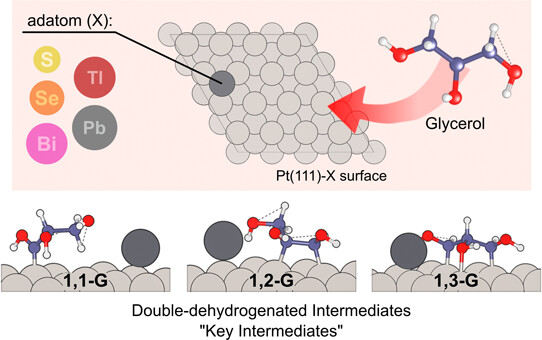


The researchers are exploring the use of elements from the p-block of the periodic table – bismuth, lead, thallium, selenium, germanium, antimony, tin, indium and sulfur – adsorbed on platinum electrodes to improve catalyst efficiency and prevent poisoning by carbon monoxide and other intermediates (image: CDMF)
Published on 06/11/2025
Agência FAPESP* – Researchers from the Center for the Development of Functional Materials (CDMF) and the Institute of Chemistry of the State University of Campinas (IQ-UNICAMP) have developed a study that paves the way for the development of new catalysts for energy production and the use of biomass.
The CDMF is a FAPESP Research, Innovation and Dissemination Center (RIDC) based at the Federal University of São Carlos (UFSCar).
The research is focused on the electrochemical oxidation of alcohols and polyalcohols, an important process for energy generation in fuel cells (a generator of electrical energy using hydrogen) and for the production of high value-added chemical products such as biomass derivatives and green hydrogen.
The work, carried out by researchers Gabriela Volpini Soffiati from the CDMF and Miguel Angel San-Miguel from IQ-UNICAMP, in partnership with the experimental group led by Pablo Fernández, also from UNICAMP, was published in the article “P-Block Elements Activate Pt Surfaces for the Electrooxidation of Alcohols and Polyols When Promoting the -OH formation” in the scientific journal ACS Catalysis.
The researchers are exploring the use of elements from the p-block of the periodic table – bismuth, lead, thallium, selenium, germanium, antimony, tin, indium and sulfur – adsorbed on platinum electrodes to improve catalyst efficiency and avoid poisoning by carbon monoxide and other intermediates.
The research shows that these elements increase the activity of the electrodes by stabilizing hydroxyl species, which are essential for the oxidation of alcohols.
* With information from the CDMF Press Office.
Source: https://agencia.fapesp.br/55025